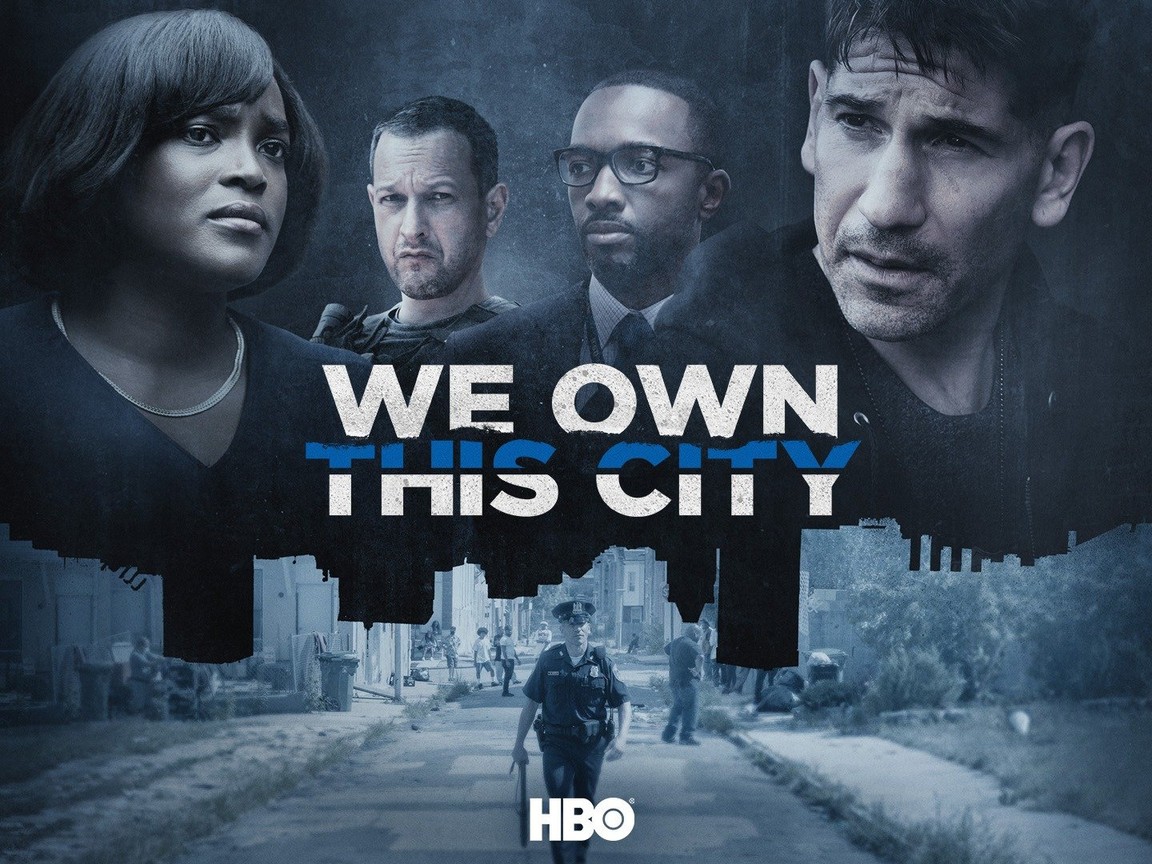The Baltimore Police Gun Trace Task Force, a plainclothes squad led by hard-charging Sgt. Wayne Jenkins (Jon Bernthal) is given broad powers to get guns and drugs off the city streets. However, the task force becomes a haven for corrupt and brutal cops as Daniel Hersl (Josh Charles) batters civilians, Momodu “G Money” Gondo (McKinley Belcher III) covers for a drug dealer, and the entire squad illegally lines their pockets with confiscated money (and, in Jenkins’ case, drugs). Justice Department civil rights attorney Nicole Steele (Wunmi Mosaku) attempts to investigate the department but is stonewalled while police commissioner Kevin Davis (Delaney Williams) lacks the clout to implement the changes he knows are necessary. Told as a series of flashbacks through the recollections of indicted GTTF officers in custody, We Own This City explores how things went so wrong for so long.
A
spiritual successor to The Wire, this miniseries adaptation of Justin
Fenton’s nonfiction book brings back some of the same talent behind
(writer-producers David Simon and George Pelecanos created the show) and in
front (Williams and Jamie Hector play significant roles while Tray Chaney,
Domenick Lombardozzi, Jermaine Crawford, and Chris Clanton appear in smaller
parts) of the camera. But whereas The Wire was already a fairly cynical
show, We Own This City manages to paint an even bleaker picture of
institutional rot.
From the ominous
drums (interspersed with sirens and gunfire) of the theme song to the update
text that displays during the final episode, We Own This City pulls no punches
and offers no quarter. The corrupt cops end up in jail after turning on each
other, but that comes far too late to help anyone they’ve hurt. Davis is made
the scandal’s scapegoat and ousted, only to be followed out the door later by
his replacement and the mayor who fired him (both on tax evasion/corruption
charges). Steele is pushed to the point of resignation when she suspects that
the incoming Trump administration will sideline her investigative efforts. Sean
Suiter, a former GTTF member turned homicide detective, dies under mysterious
circumstances (officially, suicide made to resemble being killed in the line of
duty) before he can testify. Don’t expect a “Bubbles comes up from the basement”
moment here.
While this
overwhelming sense of futility can make the show hard to invest in, We Own This
City is undoubtedly well-crafted. Bernthal, the erstwhile Punisher, as a
violent hothead does not strain the imagination, but he does an excellent job
of giving Jenkins layers. From the Baltimore accent to the faux-affability to
the pettiness, insecurity, and delusional narcissism, it’s a fully fleshed out
portrayal of a deplorable human being. No less impressive is Hector’s work as
Suiter. His guilt-ridden performance is a night-and-day contrast to his earlier
turn as The Wire’s lead antagonist (icy druglord Marlo Stanfield).
The unrelenting
bleakness and nonlinear structure can make We Own This City a challenge,
but its sobering look at wide-ranging systemic failure (from Black political
leadership to white supervising officers on down) makes it vital.

No comments:
Post a Comment